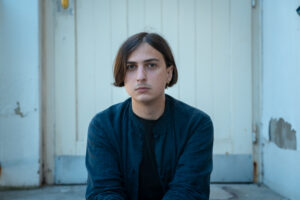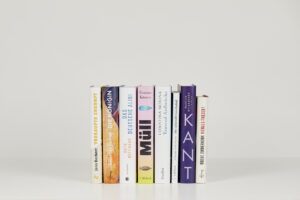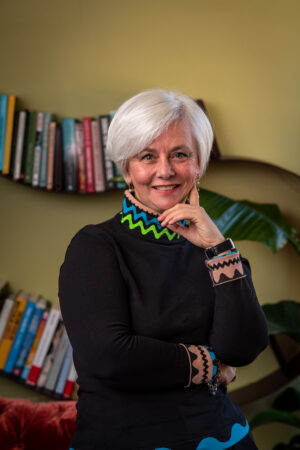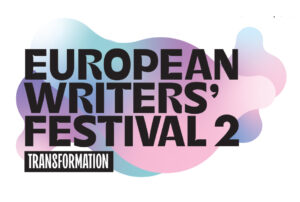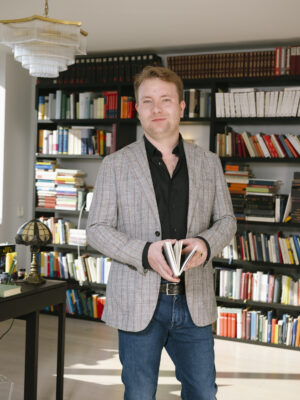Alexandra Roesch interviews author Jackie Thomae and her translator Ruth Ahmedzai Kemp.
German Book Prize shortlisted author Jackie Thomae and her translator Ruth Ahmedzai Kemp spoke to Alexandra Roesch about the novel Brothers, forthcoming with DAS Editions, its themes of identity and race, German culture spanning the 80s, 90s and 2000s and the translation process.
Brothers is a novel about family and masculinity, and the question of whether we shape our own destiny – or whether our background and character inevitably shape us. We meet two German half-brothers navigating their manhood, reluctant to centralise the colour of their skin as a way of defining how they see themselves and the decisions they make.
Alexandra Roesch: Thank you both for taking the time to speak to me.
Jackie, your work often explores the complexities of human relationships and the impact of personal history on individuals’ lives. This novel provides insights into the lives of two brothers who experience life from vastly different perspectives. What inspired you to explore the dynamics of their relationships and their individual struggles?
Jackie Thomae: I had long contemplated the idea of depicting two very different male characters from my generation. After my first novel, ‘Momente der Klarheit’, I became known as a writer who understands men, and these characters really were a lot of fun to create. My intention was to chronicle the life paths of those born in the early seventies from a male perspective, spanning from the eighties to the present day. I wanted to describe two divergent paths: broadly speaking, the carefree party animal on one side and the ambitious careerist on the other. The question on the cover of the book is how do we evolve into the individuals we are in the middle of our lives. And I also wondered what all this had to do with my decisions, with the people in my life, the Zeitgeist and my own personality?
Ruth, how did the opportunity to translate Brothers arise?
Ruth Ahmedzai Kemp: I had already worked with DAS Editions publisher Gersy Ifeanyi Ejimofo on my translation of Die Zeit journalist and art critic Ijoma Mangold’s The German Crocodile. It was Ijoma who recommended Brothers, in fact, and I’m glad Gersy listened to him! It’s an honour to work with this small, vibrant UK independent press, and I look forward to seeing their growing list.
Jackie, Brothers not only tells a story but also invites readers to contemplate broader societal issues. What do you hope readers will take away from the book in terms of self-reflection and understanding?
Jackie: The brothers were both born in 1970, and I tell their story from 1985 to 2017. The narrative begins with their birth in East Germany, their father a Black visiting student who is noticeably absent. While this setup may sound dramatic, my focus lies in exploring the actual lives of these two individuals against the backdrop of the events unfolding in Germany during that period.
The German edition was published in 2019, a time when Germany was grappling with racism more than ever before, a theme that the press extensively highlighted. However, the essence of the narrative transcends the social context. Many readers connected with the story on a personal level, irrespective of their backgrounds. They grasped the core message: a portrayal of individuals with joys, desires and fears. Ideally, the characters resonate with the reader and make them think: “I recognise this – from my own experience or that of others.” The most meaningful compliments I’ve received come from female readers who shared that they recognised aspects of Gabriel or Mick because they had once been involved with someone similar. Feedback like this is deeply gratifying for me as an author.
Ruth, Brothers deals with themes of identity and race in a nuanced way. How did you ensure that these nuances from the original German version were accurately conveyed to English-speaking readers?
Ruth: Interesting that you pick out the word identity. Yes, it is about the often ironic mismatch between how the protagonists see themselves and the image they project to others. But to me it’s also about a refusal to think about identity, a reluctance on the part of several characters to see themselves and their behaviour as others might, an urge to run away from the question of identity and find a space where we don’t have to be defined – as unrealistic as that is. We see it with all the characters, male and female, each in their own way: this ability to lie to themselves, to create a projected identity that bears little relation to what’s going on inside.
So yes, it’s a novel about identity – racial identity but also in terms of sexuality, nationality, language, class. It seemed to me to be about so many aspects of our psychology and that includes the way we respond differently to commitment and adult responsibilities, the way we respond to music, the way we internalise and deal with stress and pressure, and the way that we interpret our roles within a relationship.
Jackie, alongside the overarching theme of the search for identity, the novel also explores issues of race and multiculturalism in contemporary Germany. Do you think these themes will resonate with English-speaking readers, and what impact do you hope the book will have beyond the German readership?
Jackie: On the one hand, I tell the story from a Black German perspective. Germany is still often perceived as predominantly white from an external standpoint. This perception changes over the decades I depict. On the other hand, one part is set in East Germany. The prevailing image of this country tends to be more one-dimensional than the image of West Germany; it’s just highlights and invariably centred around the Stasi. However, the vanished nation not only had this official side but also had a private dimension, and that was important to me to convey. And then there is the bubble in which Mick spends the nineties – Berlin’s vibrant club scene. This world, in its basic features, has evolved into one of the city’s primary tourist attractions. It could have vanished, like disco or new wave before, but it persists. Yet, during the writing process, I noticed how historical the nineties and the 2000s felt. From the first semi-legal clubs to the hysteria surrounding the millennium. I found myself realising: “Oops, I’ve written a historical novel.”
Ruth, the novel is split between the lives of the two brothers, Mick and Gabriel. Despite having the same father, one of them grows up in East Germany and ends up in London in the early 2000s, while the other grows up in East Berlin and moves to West Berlin as a teenager. How did you handle the different voices and narrative styles of the characters during the translation?
Ruth: Yes, the two brothers give the novel its underlying structure: their very separate life trajectories and the unexpected ways in which they overlap. But in a way, they’re just the starting point and it evolves into a novel as much about their father, their mothers, the women in their lives. There are actually four direct narratorial voices, as the second half of the book opens with Gabriel but is told in alternating chapters narrated by Gabriel and his wife Fleur, and there’s an intermezzo from the perspective of the brothers’ absent father, Idris.
And then in Mick’s half of the novel – the hazy trip through the 90s and millennial Berlin club scene – the point of view shifts subtly to that of his girlfriend Delia and his mother, Monika, too. So the two brothers are the construct or frame to the novel, but it’s as much about the women in their lives: their aspirations, their exasperation, the compromises they all make to put up with each other and to manage their intertwined and interdependent lives.
It’s a book ultimately about how we can be part of the same relationship, the same life events and yet see and interpret them completely differently, and the ironic way the point of view alternates between different perspectives makes this contrast stark and often very funny. We’ll end one chapter with one character utterly confident of the way that they see a situation, only to have it totally undermined or differently interpreted by their partner in the next chapter.
When editing the final draft I actually rearranged the chapters and read all of Fleur’s chapters together, then all of Gabriel’s, to focus on consistency in their style of expression, their use of punctuation, the pace and structure of their sentences.
Jackie, Brothers features complex and deeply layered characters. How did you approach the development of characters like Mick and Gabriel, and what insights do you hope readers will gain from their journeys?
Jackie: I spent so much time with the two that I know them as if they were my brothers. I would readily travel with Mick, and for resolving serious matters I would turn to Gabriel. Both have to deal with an outsider status. Mick plays the exotic card and thrives on being liked; in return, he is also someone who genuinely loves people. Gabriel, on the other hand, deems this too nebulous. He is self-reliant, and to him being an outsider means being better than others. While Gabriel strides ahead, Mick meanders. Both possess a unique beauty, and both are relatable. Just like the types of relationships they have. By the way, women take up as much space as men in this narrative. It’s a story without antagonists and I place emphasis on telling without judging. Therefore, the underlying message could be: take a closer look and you’ll gain a deeper understanding of everyone. That held true for me during the writing process, and it often recurs for me as a reader.
Ruth, Brothers is deeply rooted in German culture, shifting from life in the GDR to the fall of the Berlin Wall and Berlin in the nineties and noughties. Were there specific cultural references that presented challenges or intrigued you during the translation process?
Ruth: Definitely, as always. The journeys down rabbit holes and into German history, architecture, hairstyles, pop music history are what makes translation always exciting – and very distracting! I studied GDR literature, and we had family friends from Dresden since the year that the Wall came down – so I had a good basic understanding of the cultural and political context. But still so much to learn.
I didn’t know about the Zwangsumtausch, for example: the rule that visitors to East Germany from the West had to exchange a minimum amount of West German marks for East German marks, one to one, i.e.. far below market value. This is a small detail in the dialogue in which it comes up – a sort of hint at the sense of hopelessness and disappointment in the GDR expressed indirectly by one character – but it’s also a gradual step into recurring themes of East vs West wealth and purchasing power, gentrification, life prospects, the social role of architecture … And, in another way, the physical act of carrying money over the border has major life consequences when Idris is stopped by border police at a time when he’s feeling particularly vulnerable as a Black student in East Germany.
Like any translator, my search history is full of oddities … West German 90s fashion choices, 1970s Brazilian, German and Italian songs (with Jackie’s permission, we sneaked in an Iggy Pop song, too – I’ll leave readers to spot it), GDR cultural conventions, the vocabulary of drug smuggling, the finer nuances of various education systems. And yet one thing that I really enjoyed about the book (and that made me so fond of Mick – for all his foibles) was that it’s sort of a historical novel of my era: I felt very at home with the 90s backdrop of trip hop, drum’n’bass, Tarantino and Wong Kar-Wai movies … though I was glad of Jackie’s help in pointing out a couple of film references I missed!
Jackie, there are autobiographical elements woven into the novel – you too grew up in the GDR and moved to Berlin after reunification and met your father late in life. How did your personal experiences influence your writing?
Jackie: I could create the feelings of the people from my own memory. I know the questions asked of the brothers, including the questions they asked themselves. And this goes beyond “Where are you really from?” because they not only share my familial background, they are also roughly my age. Nevertheless, they are all fictional, like all characters in this book. But each of them represents distinct narratives that I wanted to recount. I made up these biographies, but I knew that these kind of life paths existed.
Ruth, as someone based in the UK, which has its own history of multiculturalism and racial issues, did you notice parallels between the book’s themes and the UK context? Did these parallels influence your translation choices?
Ruth: It’s a German novel yet it’s half set in London: Brothers fits very cleverly into the UK narrative tradition of exploring race and racism from Zadie Smith through to Natasha Brown’s Assembly (which Jackie Thomae has herself translated from English into German) and Bernadine Evaristo (Jackie has written the German screenplay based on Girl Woman Other). But what’s new for UK readers is that this is a European Black author’s take on UK racism, exploring the subtle ways in which social bias and prejudice play out differently in the UK and Germany.
The biggest practical question I faced as a translator was perhaps the extent to which to capitalise b/Black and w/White throughout the text. The novel is made up of different voices, each reflecting on different eras; the characters aren’t all at the same point in their journeys of thinking about race and identity and social bias; they aren’t all necessarily conscious of the weight of words in the same way. So if they were writing their own narratives, would they use a capital or a lower case B/b for ‘Black’? After a very thorough editorial discussion we decided to capitalise consistently across the book, with the exception of one passage.
Jackie, could you share your experience of collaborating with Ruth on the translation of “Brothers”? What aspects of the translation were crucial to maintaining the integrity of the original work, and were there any unique challenges within the translation that you addressed together?
Jackie: Collaborating with Ruth was great fun! In another language, I could have only answered the translator’s questions, but in English, I was able to read the novel again and see what she actually did, how precisely and subtly she worked. German and English are like siblings, looking alike but having different characters. It almost serves as an allegory for the brothers in the narrative. And I am in love with both. English seems more accessible; German can seem like a cumbersome nerd. Then again it’s playful: by simply combining words or by sentence structure and pronunciation, you can completely change the sentence’s meaning. There’s often a multitude of English equivalents for a German word, but which one fits best? As I discussed these final queries with Ruth, I not only learned a lot but also laughed a lot.
Ruth, literature has the power to transcend borders and spark conversations. What are your hopes for how English-speaking readers will engage with and interpret the themes of Brothers?
Ruth: Ripe for discussion is the theme of reunification – of Germany, and of Europe after the Cold War, but also of separated families. Yet while there’s momentum in one direction among some characters, at the same time not everyone is ready to come back together; Fleur has an important reunion with someone that doesn’t – and perhaps never could – go as she might have hoped; and through both Gabriel and Mick we see the absurd distances we humans will go to avoid reconciliation and avoid difficult truths, including escaping to another country or continent.
There are probably so many themes to interpret that I haven’t even noticed because it’s one of those novels where we can read our own lives and stories into it. But my main hope is that Brothers makes its way onto university reading lists across the English-speaking world – it deserves to be up there with the contemporary classics, and perhaps headlining an inclusive, anti-racist syllabus for 21st century European literature. Jackie Thomae deserves to be seen as one of those groundbreaking writers reinventing what German literature is today.
Jackie, German literary critics have lauded your intelligent style and wry sense of humour, qualities they deem largely absent in German literature, comparing your writing to that of Zadie Smith. Do you feel that your writing particularly lends itself to the English language, and were you especially influenced by any English language writers?
Jackie: I enjoy reading contemporary English-language literature, more so than ever since I started ordering e-books. Discovering a great new author? A simple click, bring it on! But it wasn’t like I thought, “I’ll write a novel with an Anglo-Saxon feel now”. I wanted to write a German Zeitgeist novel that also conveys that Zeitgeist in pace and sound. Take the nineties, for example, a decade steeped in irony: this theme runs through the narration and dialogues. Mick himself has a sense of humour, while with Gabriel it stems more from his seriousness, reflected by his wife and later his son. He is a Black man who behaves the way people outside Germany imagine a German to be: he is an engineering type, as reliable as a Miele appliance. He sounds like someone from the band Kraftwerk, his son quips about him. Stereotypes are a recurring theme, and within them lies a rich source of comedic potential.
BROTHERS by Jackie Thomae, translated by Ruth Ahmedzai Kemp, is due to be published on the 29thFebruary by DAS Editions.
Book launch! Join poet, writer, editor and sociocultural commentator Nii Ayikwei Parkes in conversation with Jackie Thomae and Ruth Ahmedzai Kemp on Thursday, 21st March 2024 at the Goethe-Insitut in South Kensington, London. For more information and tickets please click here.
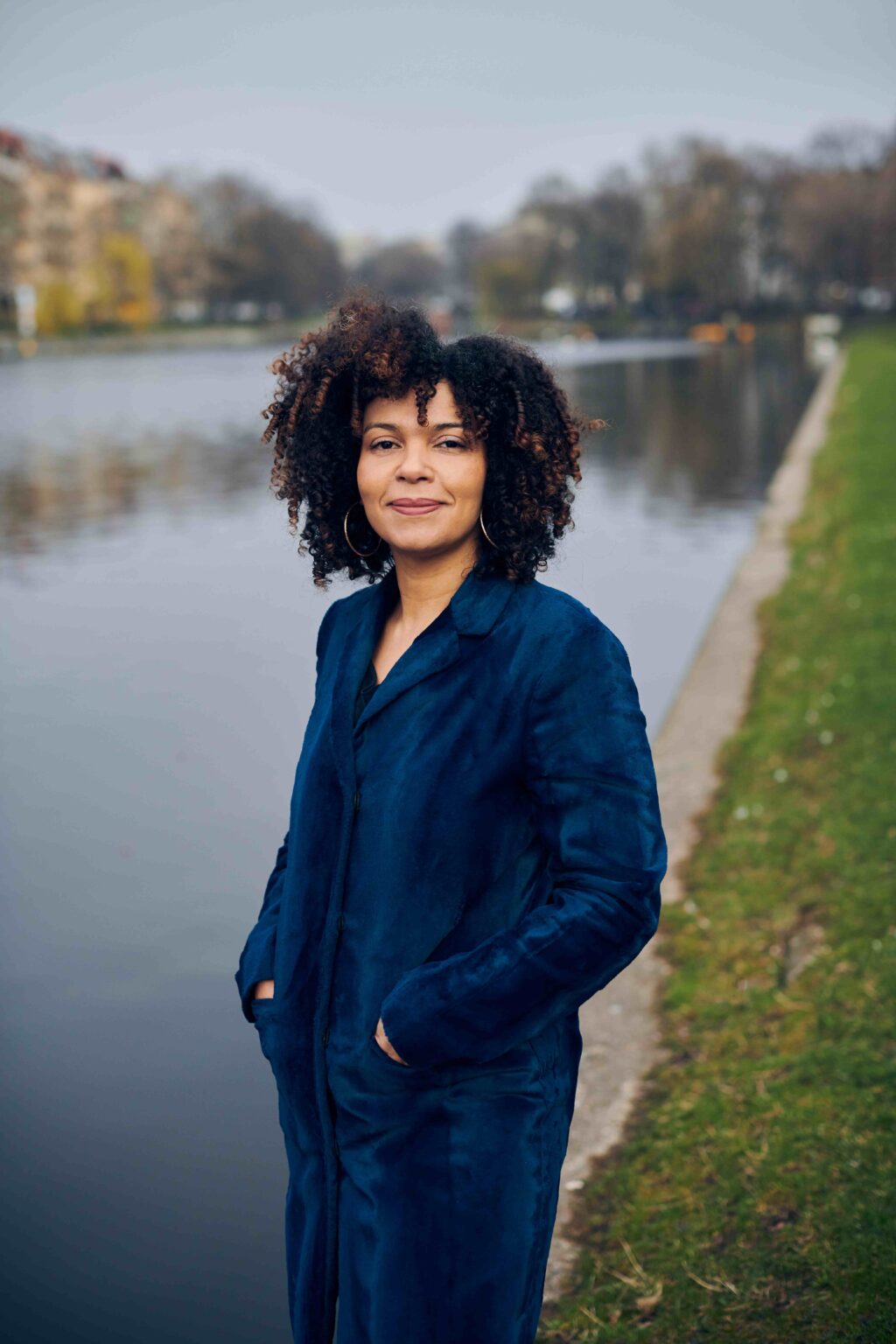
©Urban Zintel
Jackie Thomae was born in 1972 and is a German journalist and writer. She is the author of several works of nonfiction, fiction, literary translations, and audio and screen plays. Her debut novel, Moments of Clarity, was published in 2015. Her second novel, Brothers, was on the shortlist for the German Book Prize in 2019 and was awarded the Düsseldorf Literature Prize in 2020.In 2021 she was awarded the Lessing Prize of the Free State of Saxony. Her literary translations include Zusammenkunft from the English original Assembly by Natasha Brown and in 2023, she wrote an audio play based on the novel Girl Woman Other by Bernardine Evaristo. Born in Halle, Jackie grew up in Leipzig and Berlin where she currently resides.
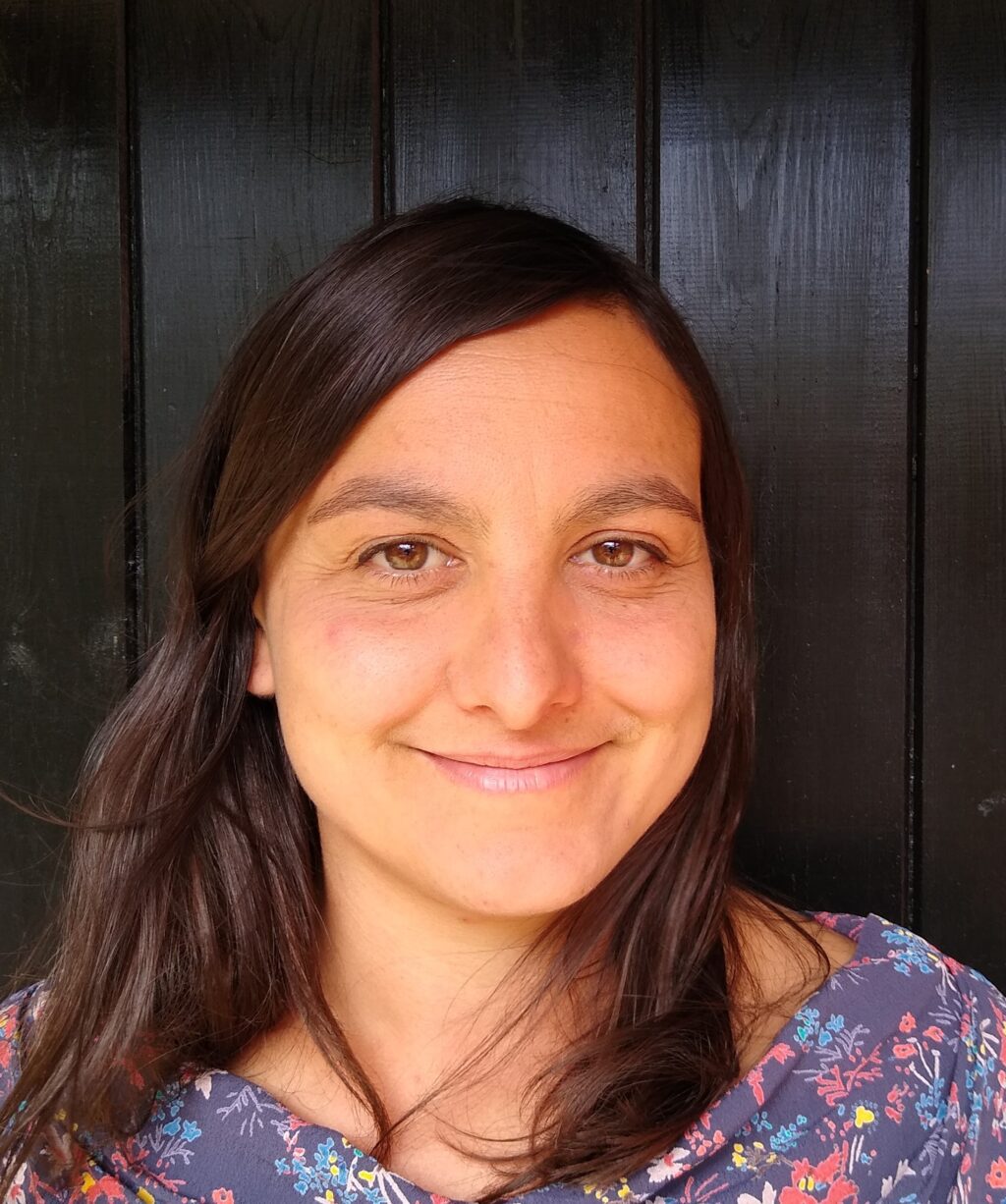
Ruth Ahmedzai Kemp
Photo courtesy Norm Kemp
Ruth Ahmedzai Kemp translates fiction and nonfiction from Arabic, German and Russian. She has a particular interest in history, historical fiction, diverse and inclusive literature including works by authors of colour and immigrant writers, and books for children and young adults. She has translated or co-translated over 30 books by authors from Croatia, Germany, Jordan, Morocco, Palestine, Russia, Slovakia, Switzerland and Syria. She won an IBBY Honour List award in 2022 for her translation of The Raven’s Children by Yulia Yakovleva. Her work has also been shortlisted for the Helen & Kurt Wolff Translator’s Prize, the Saif Ghobash Banipal Prize and the GLLI Translated YA Prize.
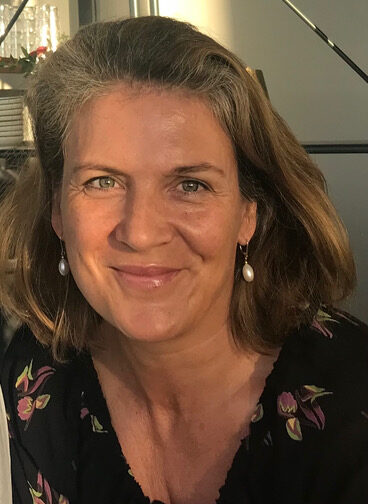
Alex Roesch is a bicultural, bilingual freelance translator based in Frankfurt, Germany. An experienced translator of fiction and nonfiction, she has an MA in Translation from the University of Bristol; was one of twelve international translators at the Summer Academy 2017 at the Literarisches Colloquium Berlin (LCB); and was selected for the International Translators Program of the Frankfurt Book Fair in 2021.



